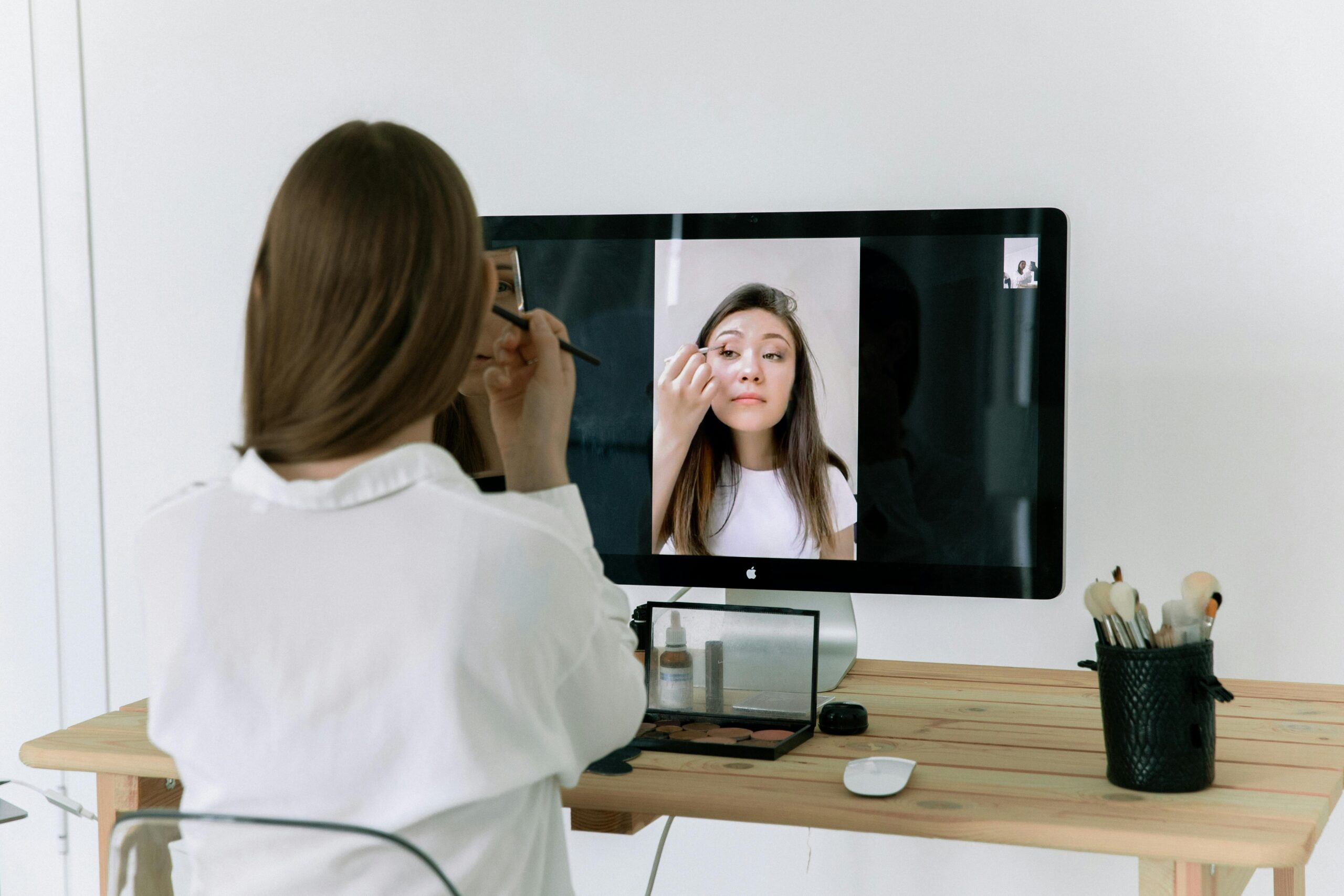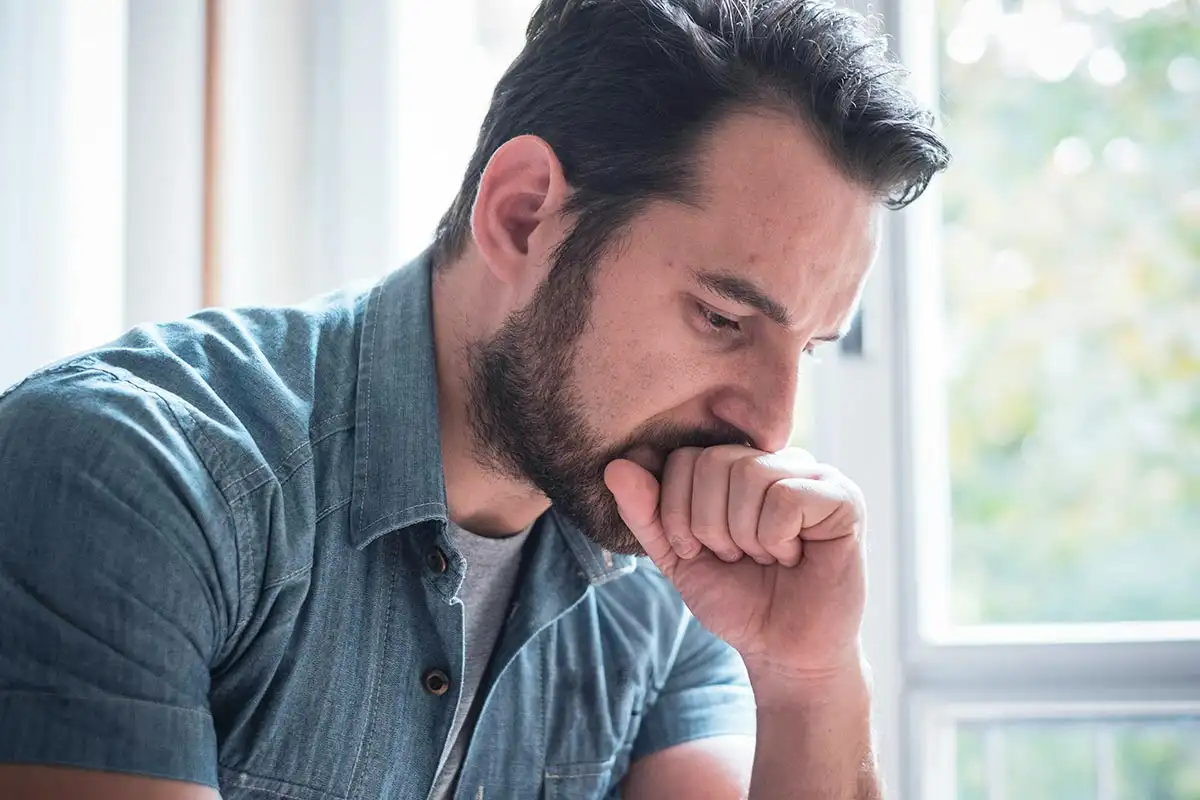
Orange County Virtual IOP for Co-Occurring Disorders: Integrated Online Treatment
Medically Reviewed by:

Dr. Marco M. Zahedi
Medical Director, Compassion Recovery Center

Dr. Michael Majeski
Licensed Psychologist (LP), Compassion Recovery Center
Table of Contents
The Path to Healing: Understanding Co-Occurring Disorders and the Power of Integrated Treatment
Living with a substance use disorder can feel overwhelming, like navigating a storm without a compass. When this struggle is compounded by a mental health condition, such as depression, anxiety, or trauma, the journey can seem even more daunting. This combination, known as co-occurring disorders or a dual diagnosis, is more common than many realize and significantly impacts an individual’s well-being, relationships, and daily functioning. The symptoms of one condition can often worsen the other, creating a challenging cycle that can be difficult to break without specialized help. For instance, someone might use substances to cope with anxiety symptoms, only to find that their substance use ultimately intensifies their anxiety over time. Similarly, the effects of substance withdrawal can mimic or exacerbate symptoms of depression or other mental health issues.
Recognizing that these conditions are intertwined is the first crucial step towards effective healing. Treating only the substance use or only the mental health condition in isolation often leads to incomplete recovery and a higher risk of relapse. This is why an integrated treatment approach is paramount. Integrated treatment addresses both the substance use disorder and the mental health condition simultaneously, in a coordinated manner. This holistic perspective acknowledges that both issues contribute to the overall problem and that recovery in one area supports recovery in the other. At Compassion Recovery Center, we understand the complexities of these challenges and emphasize the importance of dual diagnosis treatment. Our goal is to provide a pathway to recovery that is both comprehensive and accessible, especially for residents of Orange County seeking flexible solutions.
Intensive Outpatient Programs (IOPs) have emerged as a highly effective model for providing robust support while allowing individuals to maintain their daily responsibilities, such as work, school, or family care. An IOP offers a structured schedule of therapeutic services, including individual and group therapy, psychoeducation, and skills development, but without requiring a residential stay. This level of care is a significant step down from inpatient rehab or Partial Hospitalization Programs (PHP), yet more intensive than traditional weekly outpatient therapy. The benefits are numerous: individuals can apply coping skills learned in therapy directly to real-life situations, maintain connections with their support networks, and begin rebuilding their lives while still receiving substantial professional guidance. With the advancement of technology, these vital services are now more accessible than ever through virtual platforms. Our Orange County Virtual IOP is specifically designed to bring this high-quality, integrated care directly to you, in the comfort and privacy of your own home. If you or a loved one are struggling, we encourage you to reach out today to learn how we can help.

Understanding Co-Occurring Disorders in Depth
Co-occurring disorders, also commonly referred to as dual diagnosis, describe the condition where an individual experiences a mental health disorder and a substance use disorder simultaneously. It’s not a matter of one causing the other, though they often influence each other significantly; rather, they are distinct illnesses that require specific attention. Examples are plentiful and varied: a person might struggle with alcohol use disorder alongside major depressive disorder, or perhaps use cannabis heavily while dealing with an anxiety disorder like panic disorder or social phobia. Other common co-occurring combinations include bipolar disorder and cocaine addiction, or post-traumatic stress disorder (PTSD) and opioid dependence. It’s also important to recognize conditions like Obsessive-Compulsive Disorder (OCD) co-occurring with addiction or even behavioral addictions like social media addiction alongside mental health concerns.
Individuals grappling with co-occurring disorders face a unique set of challenges. Firstly, the symptoms can overlap, making accurate diagnosis difficult. For example, insomnia, agitation, and difficulty concentrating can be symptoms of both anxiety disorders and substance withdrawal. This complexity can lead to one condition being overlooked or misdiagnosed, resulting in treatment that only addresses part of the problem. Secondly, there’s often a cycle of self-medication; individuals may use substances to alleviate the distressing symptoms of their mental health condition – for instance, using alcohol to quiet social anxiety or opioids to numb emotional pain from trauma. While this might offer temporary relief, it invariably worsens both conditions in the long run, leading to increased substance dependence and more severe mental health symptoms, as explored in our article on self-medicating risks. Furthermore, the stigma associated with both mental illness and addiction can be a significant barrier, preventing individuals from seeking help or speaking openly about their struggles. This dual stigma can lead to feelings of isolation, shame, and hopelessness.
Given these complexities, specialized treatment approaches are not just beneficial, they are essential for lasting recovery. An integrated approach, where mental health and substance use disorders are treated concurrently by the same team or through closely coordinated services, yields the best outcomes. This ensures that the treatment plan is cohesive and addresses the intricate interplay between the conditions. For example, therapy might focus on developing healthier coping mechanisms for anxiety triggers that previously led to substance use. Medication management, if appropriate, can address symptoms of both disorders. Without this specialized, integrated care, individuals may find themselves bouncing between different providers who may not fully understand the other aspect of their condition, leading to fragmented care and a higher likelihood of relapse. Compassion Recovery Center provides specialized mental health treatment alongside drug rehab programs and alcohol rehab programs, understanding the deep connection between them. If you believe you or a loved one may be experiencing co-occurring disorders, start your free assessment with us to explore tailored treatment options.
The Role of Virtual IOP in Treating Co-Occurring Disorders
A Virtual Intensive Outpatient Program (Virtual IOP) is an innovative and highly effective way to deliver comprehensive addiction and mental health treatment directly to individuals in their own homes or other private settings via secure telehealth platforms. Much like a traditional in-person IOP, a Virtual IOP offers a structured curriculum of therapeutic services. Key components typically include several hours of programming per week, often spread across multiple days. This usually involves a combination of group therapy sessions, individual counseling with a dedicated therapist, psychoeducational workshops focused on understanding addiction and mental health, and skills-building groups aimed at developing healthy coping mechanisms, stress management techniques, and relapse prevention strategies. You can learn more about what a virtual IOP is and how it works on our blog. Participants connect through video conferencing, allowing for face-to-face interaction with therapists and peers, fostering a sense of community and shared experience despite the physical distance. This Remote IOP model maintains the intensity and quality of care found in traditional programs while offering unparalleled flexibility and accessibility.
The benefits of virtual treatment, particularly for individuals with co-occurring disorders, are substantial. Firstly, accessibility is dramatically improved. Those living in remote areas of Orange County, or those with mobility issues, transportation difficulties, or demanding work or family schedules can access high-quality care without the need to travel to a physical facility. This increased accessibility is explored in our post on virtual treatment for underserved communities. Secondly, receiving treatment in the comfort and privacy of one’s own home can reduce the anxiety and stigma often associated with seeking help for mental health and addiction. This familiar environment can make it easier for individuals to open up and engage more deeply in therapy. For those with co-occurring disorders, managing appointments for both mental health and addiction can be logistically challenging; a Virtual rehab California program consolidates much of this care, making it easier to stay consistent. Furthermore, virtual programs often allow for greater anonymity if desired, which can be a crucial factor for individuals concerned about privacy, such as working professionals.
A Virtual IOP does not exist in a vacuum; it can be effectively integrated with other treatment modalities to create a comprehensive continuum of care. For instance, an individual might step down to a Virtual IOP after completing a more intensive level of care, such as residential treatment or a Partial Hospitalization Program (PHP). It can also serve as a primary mode of treatment for those whose needs are well-suited to an outpatient approach from the outset. Furthermore, Virtual IOPs can seamlessly incorporate Medication-Assisted Treatment (MAT), with medical consultations and prescriptions managed remotely where appropriate and legally permissible. It can also work in conjunction with local primary care physicians or psychiatrists for in-person needs, while the core therapeutic work is done online. The flexibility of telehealth addiction treatment allows for a personalized care plan that can adapt to an individual’s evolving needs throughout their recovery journey. If you’re considering how this might fit into your life, we invite you to verify your insurance online and explore your options with Compassion Recovery Center.

Key Features of Orange County Virtual IOP at Compassion Recovery Center
Compassion Recovery Center is dedicated to providing accessible, high-quality care for individuals struggling with substance use and co-occurring mental health disorders throughout Orange County. Our Orange County Virtual IOP is specifically designed to meet the unique needs of our community, leveraging the power of technology to deliver comprehensive treatment directly to you. Our services are rooted in evidence-based practices and delivered with empathy and understanding. We offer a range of programs, including Virtual IOP, traditional Intensive Outpatient Programs (IOP) for those who may prefer or require some in-person components (though our primary focus is telehealth), and support for outpatient detox where clinically appropriate and manageable via telehealth. Our core belief is that recovery is possible for everyone, and our mission is to remove barriers to accessing effective care.
Our telehealth addiction treatment model offers numerous advantages. Convenience is paramount; clients can attend therapy sessions, participate in groups, and meet with counselors from the comfort and privacy of their homes, eliminating travel time and associated costs. This is particularly beneficial for busy professionals, parents with childcare responsibilities, or individuals with transportation challenges in sprawling areas like Orange County. Privacy is another significant benefit. For many, the decision to seek treatment is a deeply personal one, and the discreet nature of online therapy can make it easier to take that first step. Our secure, HIPAA-compliant platform ensures confidentiality. Moreover, telehealth allows for greater consistency in treatment. Life events, minor illnesses, or travel don’t have to mean missing crucial therapy sessions. As long as you have an internet connection and a private space, you can continue your recovery work. This continuity is vital for building momentum and achieving lasting change. Our approach to remote drug rehab Orange County ensures that geographical location within the county is not a barrier to receiving expert care.
A cornerstone of our Virtual IOP for co-occurring disorders is Online CBT therapy (Cognitive Behavioral Therapy). CBT is a highly effective, evidence-based psychotherapeutic approach that helps individuals identify, understand, and change negative thought patterns and behaviors that contribute to both substance use and mental health conditions. In the context of co-occurring disorders, online CBT sessions teach practical skills to manage cravings, cope with triggers, challenge irrational thoughts that fuel anxiety or depression, and develop healthier emotional regulation strategies. For example, a client might learn to identify the automatic negative thoughts that arise before reaching for a substance and then work to reframe those thoughts and choose a different coping mechanism. Group CBT sessions also provide a supportive environment where individuals can learn from each other’s experiences and practice new skills. The structured nature of CBT makes it well-suited for online delivery, with clear goals and measurable progress. To understand more about how specific therapies like CBT are used, you can read our beginner’s guide to evidence-based therapies. If you’re ready to explore how our specialized online CBT therapy can help you, contact us for a confidential assessment.
The Power of an Integrated Online Treatment Approach for Co-Occurring Disorders
An Integrated Online Treatment approach is fundamental when addressing co-occurring disorders because it acknowledges the complex, often reciprocal relationship between mental health conditions and substance use. Instead of treating these issues separately or sequentially, integrated care addresses them simultaneously, within the same treatment plan, often by the same team of professionals. This holistic strategy recognizes that symptoms of one disorder can trigger or worsen the other. For example, untreated anxiety might lead an individual to use alcohol to cope, which in turn can lead to alcohol dependence and exacerbate anxiety symptoms during withdrawal or due to the lifestyle changes associated with heavy drinking. An integrated plan would therefore include therapies and strategies to manage anxiety (like mindfulness or CBT) alongside education and support for stopping alcohol use. This comprehensive method ensures that underlying mental health issues are not overlooked, which is crucial for preventing relapse and promoting long-term well-being. At Compassion Recovery Center, our dual diagnosis treatment programs are built on this integrated philosophy, understanding that true healing requires addressing the whole person.
The importance of a holistic approach in virtual rehab cannot be overstated, especially for co-occurring disorders. Holistic care extends beyond just symptom management; it considers the individual’s overall well-being – emotional, psychological, social, and even physical. In a virtual setting, this means our programs incorporate various elements to support all these facets. This might include psychoeducation on the mind-body connection, stress management techniques like mindfulness and relaxation exercises, guidance on building healthy routines (as discussed in the importance of routine in early recovery), and support for developing a strong sober support network, even virtually. We also focus on empowering clients to improve their lifestyle factors, which can be profoundly impacted by both mental health and substance use, such as sleep hygiene, nutrition, and exercise, which are crucial for rebuilding physical health after addiction. By addressing these interconnected aspects, our Orange County Virtual IOP aims to foster resilience and equip individuals with the tools for a balanced and fulfilling life in recovery.
Examples of integrated online treatment plans for co-occurring disorders are tailored to each individual’s unique combination of conditions, history, and needs. For someone with depression and alcohol use disorder, an integrated plan might involve:
- Individual online CBT therapy sessions focused on identifying and challenging depressive thought patterns and developing coping strategies for alcohol cravings.
- Group therapy sessions where they can share experiences and learn from others facing similar challenges with both depression and substance use.
- Medication management, potentially including antidepressants and/or medications to reduce alcohol cravings, coordinated via telehealth consultations.
- Psychoeducation about the interaction between depression and alcohol, and the importance of managing both.
- Relapse prevention planning that specifically addresses triggers related to both mood and substance use.
- Family therapy or virtual couples counseling to address relationship dynamics impacted by the co-occurring disorders.
Medication-Assisted Treatment (MAT) in a Virtual IOP Setting
Medication-Assisted Treatment (MAT) is an evidence-based approach that combines FDA-approved medications with counseling and behavioral therapies to treat substance use disorders, particularly opioid use disorder and alcohol use disorder. It’s a comprehensive strategy that addresses the physiological and psychological aspects of addiction. For opioid addiction, medications like buprenorphine (Suboxone, Subutex), naltrexone (Vivitrol), and methadone can help reduce cravings, alleviate withdrawal symptoms, and block the euphoric effects of opioids. For alcohol addiction, medications such as naltrexone, acamprosate, and disulfiram can help reduce cravings, manage withdrawal, or create an unpleasant reaction to alcohol consumption. It is crucial to understand that MAT is not simply replacing one drug with another; it’s about using medication as a tool to stabilize brain chemistry, reduce illicit drug use, and allow individuals to engage more effectively in therapy and work towards long-term recovery. When addressing co-occurring disorders treatment, MAT can be particularly beneficial as it can alleviate some of the physical distress of addiction, making it easier for individuals to focus on their mental health treatment.
The benefits of offering MAT treatment online within a virtual setting are significant, enhancing accessibility and adherence. Firstly, it breaks down geographical barriers. Individuals in Orange County, regardless of their specific location or access to transportation, can connect with qualified medical providers who can prescribe and manage MAT medications via telehealth. This is especially valuable for those in underserved areas or those with mobility issues. Secondly, the privacy and convenience of receiving MAT consultations from home can reduce stigma and make it easier for individuals to initiate and continue treatment. Attending appointments is simpler without the need for travel or taking extensive time off work. Thirdly, remote monitoring and regular check-ins via telehealth can help ensure medication adherence and allow for timely adjustments to the treatment plan as needed. This consistent support can improve outcomes and help individuals stay engaged in their recovery. At Compassion Recovery Center, we ensure that any MAT program is closely supervised by medical professionals, making it a safe and effective component of our Virtual IOP Program.
MAT is seamlessly integrated into the overall treatment plan within our Virtual IOP. It’s not a standalone solution but rather one crucial component of a holistic approach. The process typically begins with a thorough assessment by a medical professional to determine if MAT is appropriate for the individual’s specific substance use disorder and any co-occurring conditions. If MAT is indicated, the client will receive education about the medication options, benefits, and potential side effects. Prescriptions can often be sent electronically to a local pharmacy. Crucially, clients receiving MAT also participate fully in the therapeutic aspects of the Virtual IOP, including individual counseling, group therapy, and psychoeducation. Therapy sessions help address the behavioral, psychological, and social factors contributing to addiction, while the medication helps manage the physiological aspects. This combination allows individuals to stabilize physically, reduce cravings, and develop the coping skills necessary for sustained recovery. Regular follow-up appointments with the medical provider ensure the medication is working effectively and any concerns are addressed. This integrated model ensures that both the mind and body are supported on the path to healing. To learn if MAT is a suitable option for you or your loved one, check insurance coverage for our programs.
The Supportive Role of Virtual Couples Counseling in Rehab
Addiction and co-occurring mental health disorders rarely affect just the individual; they send ripples through entire families, profoundly impacting romantic relationships. The strain of addiction can lead to broken trust, communication breakdowns, financial difficulties, emotional distress for the partner, and an unhealthy dynamic often characterized by codependency or enabling. Therefore, involving partners and family members in the recovery process is often crucial for healing not only the individual but also the relational system. When partners are included, they gain a better understanding of addiction and mental health, learn how to support their loved one constructively without enabling, and begin to address their own emotional needs and heal from the impact of their loved one’s struggles. This collaborative approach can significantly strengthen the individual’s support system, which is a key factor in long-term recovery. Our blog offers insights on rebuilding trust after addiction and supporting a loved one without enabling.
Virtual couples counseling rehab provides a dedicated space for partners to work through these complex issues with the guidance of a trained therapist, all from the convenience and privacy of their own homes. This form of therapy within an addiction treatment framework focuses on several key areas. It helps couples improve communication, teaching them healthier ways to express needs, resolve conflicts, and listen to one another. It provides a platform to rebuild trust that may have been eroded by addiction-related behaviors. Therapists can help couples identify and change unhealthy relational patterns, such as codependency or blame, and establish healthier boundaries. Furthermore, couples counseling educates both partners about the nature of addiction and co-occurring disorders, helping the non-struggling partner understand that addiction is a disease, not a moral failing. This shared understanding can foster empathy and reduce resentment. By addressing these relational dynamics, virtual couples counseling helps create a more stable and supportive home environment, which is vital for the person in recovery and beneficial for the overall well-being of the partnership.
The benefits of virtual couples therapy within a rehab context are numerous, especially in a telehealth format. The convenience and accessibility of online sessions make it easier for busy couples, or those who might live apart or have conflicting schedules, to participate consistently. Reducing logistical barriers means couples are more likely to engage in and complete the therapy process. Many couples also find that discussing sensitive issues from their own familiar environment feels less intimidating than a clinical setting, potentially leading to more open and honest communication. Success in virtual couples counseling is often seen in improved relationship satisfaction, better conflict resolution skills, increased emotional intimacy, and a stronger, more collaborative approach to navigating the challenges of recovery. When both partners feel heard, supported, and equipped with better relational tools, the recovering individual has a stronger foundation for maintaining sobriety and managing their mental health, and the relationship itself can emerge healthier and more resilient. If relationship challenges are part of your recovery journey, consider how Compassion Recovery Center’s integrated approach can help.
Why Choose Compassion Recovery Center for Your Virtual IOP Needs in Orange County
When facing the complexities of co-occurring disorders, selecting the right treatment provider is a critical decision. Compassion Recovery Center distinguishes itself through a dedicated focus on providing specialized, empathetic, and accessible telehealth addiction treatment specifically tailored for individuals in Orange County. Our Orange County Virtual IOP is not simply an afterthought; it is a core component of our service delivery, meticulously designed to offer a high level of care remotely. One of our unique features is our deep understanding of the interplay between substance use and mental health conditions. Our clinical team consists of experienced therapists and medical professionals who are dually trained or have extensive experience in dual diagnosis treatment. This ensures that your treatment plan is truly integrated, addressing all facets of your well-being. We prioritize creating a safe, non-judgmental, and supportive virtual environment where you feel comfortable exploring sensitive issues and empowered to make lasting changes. Furthermore, our programs are structured to be flexible, accommodating the real-life demands of work, family, and other responsibilities, making it easier for you to commit to your recovery journey. You can get a sense of our approach by reviewing resources like how to get the most out of your virtual IOP.
While privacy considerations prevent us from sharing specific case studies, the feedback we receive from clients consistently highlights the positive impact of our virtual programs. Individuals often express appreciation for the convenience and accessibility of our telehealth services, noting how it allowed them to receive help they might not otherwise have been able to access. Many report significant improvements in managing their cravings, coping with mental health symptoms like anxiety or depression, and rebuilding relationships. The success of our Integrated Online Treatment approach is reflected in clients who achieve sustained sobriety and report a greater sense of hope, self-efficacy, and overall quality of life. Our commitment is to evidence-based practices, such as Online CBT therapy and, where appropriate, MAT treatment online, which are proven to be effective. We measure success not just by abstinence, but by the holistic improvements our clients make in their mental, emotional, and social well-being. We encourage you to explore treatment options with us and begin your own success story.
In the landscape of addiction treatment providers in Orange County, Compassion Recovery Center stands out for several key reasons. Our specialization in virtual rehab California means we have honed our telehealth delivery to ensure it is engaging, effective, and secure. We are not just a traditional center that added online options; we are experts in providing care remotely. Our deep familiarity with the Orange County community allows us to understand the unique stressors and resources available to our clients. We pride ourselves on our genuinely compassionate approach – our name reflects our core philosophy. We believe in treating every individual with dignity, respect, and understanding, recognizing the courage it takes to seek help. Our intake process is designed to be smooth and supportive, and you can easily verify your insurance online or get help now through a confidential call. We offer a robust curriculum that addresses not just the primary issues of substance use and mental health, but also life skills, relapse prevention, and family dynamics, including virtual couples counseling rehab. Choosing Compassion Recovery Center means choosing a partner committed to your comprehensive and sustained recovery.
Embracing Hope and Healing Through Virtual Integrated Treatment
The journey of recovering from co-occurring disorders – the simultaneous presence of a substance use disorder and a mental health condition – is undoubtedly challenging, but it is a path that leads to profound healing and a renewed sense of self. The benefits of choosing a specialized Orange County Virtual IOP are numerous and compelling. This innovative approach to Integrated Online Treatment brings high-quality, comprehensive care directly into your home, removing many traditional barriers such as travel, time constraints, and concerns about privacy. You gain access to evidence-based therapies like Online CBT, expert medication management for MAT if needed, and supportive group environments, all tailored to address the unique complexities of a dual diagnosis. The flexibility of a Remote IOP allows you to maintain your daily responsibilities while dedicating focused time to your recovery, applying learned skills in real-time within your own environment. This model empowers you to take control of your healing journey with convenience and discretion.
If you or someone you care about is struggling with the weight of addiction intertwined with mental health challenges, please know that you are not alone, and effective help is more accessible than ever. The first step, often the hardest, is reaching out. Embracing the possibility of change and seeking professional support is an act of immense courage and self-compassion. The path to recovery is paved with support, understanding, and evidence-based care. Virtual treatment options offered by Compassion Recovery Center provide a lifeline, offering a way to navigate these challenges without upending your life. We strongly encourage you to explore these innovative and effective treatment pathways. Consider learning more about our specialized dual diagnosis treatment and how our Virtual IOP Program can be tailored to your specific needs.
Your journey towards a healthier, more fulfilling life can begin today. Don’t let uncertainty or logistical hurdles hold you back any longer. The dedicated team at Compassion Recovery Center is here to answer your questions, address your concerns, and guide you through the process of starting treatment. We offer a confidential and compassionate space for you to explore your options. We invite you to contact us for a confidential assessment to discuss your situation and learn more about how our telehealth addiction treatment services can support your recovery. You can also check insurance coverage quickly and easily on our website. Take that brave first step; start your free assessment and let us help you build a brighter future, free from the grip of co-occurring disorders.
What are co-occurring disorders?
How does a Virtual IOP work for treating co-occurring disorders?
What are the benefits of integrated online treatment?
How is Medication-Assisted Treatment (MAT) used in virtual rehab?
Can couples therapy be effective in a virtual rehab setting?
What makes Compassion Recovery Center’s virtual IOP unique?
How can I access virtual rehab services in Orange County?
Struggling to balance life while needing support? Get expert virtual care and start your recovery journey, anytime, anywhere.
We’re learning more each day.
Researchers and doctors are making exciting progress in understanding mental health and addiction—bringing hope to millions.
Your genes don’t define you.
Genetics can play a part, but they don’t decide your future. Mental health is shaped by many factors, and healing is always possible.
There's no one-size-fits-all.
The right treatment often includes a mix of therapy, medication, and compassionate care—tailored just for you.


















